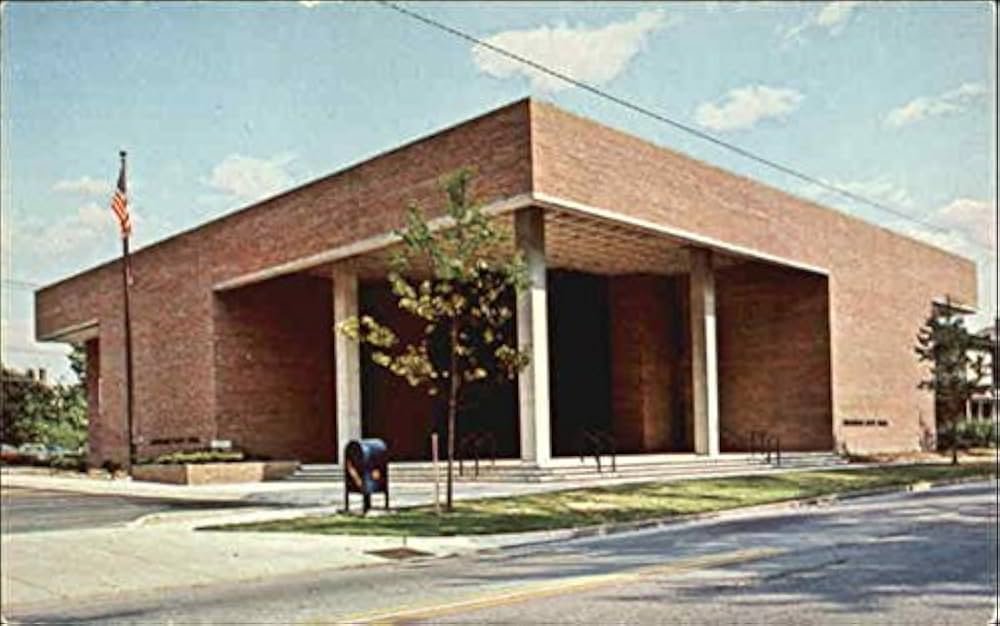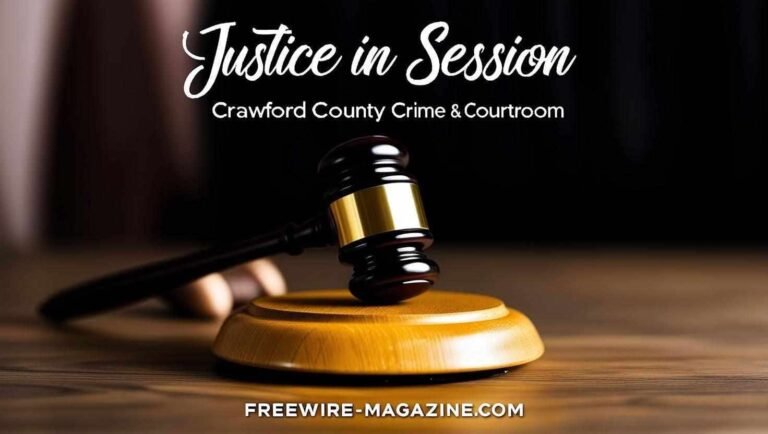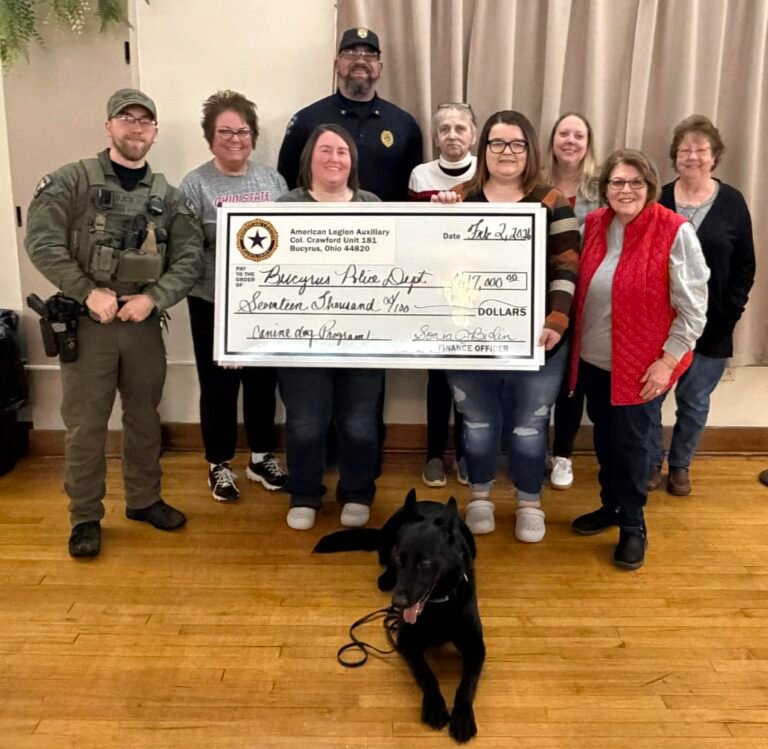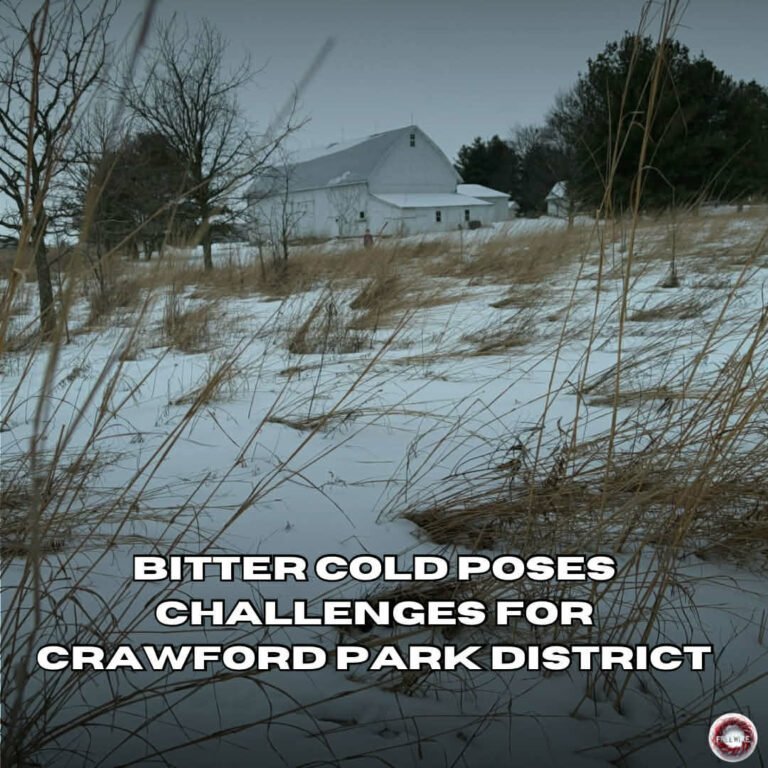by Logan Andrew | FreeWire Magazine — Your News, Your Voice

Bucyrus City Council’s September 4 committee night ran long but covered a wide sweep of city business, from zoning changes and public land ideas to the future of water service, housing, and the ever-present debate over the city’s budget.
Platting Committee
The evening opened with platting. Zoning Administrator Mike Keefe explained why an encroachment agreement is needed with Avita, which plans to pave over a section of city utilities as part of its expansion. The agreement ensures crews can dig if repairs are ever needed. Keefe urged council to move quickly, recommending emergency legislation.
Platting also revisited the question of Bucyrus’ outdated zoning. Keefe argued that “we’re still in the 1960s” and urged a shift toward cumulative zoning, which would allow more mixed-use development. He pointed to the gas station at Hopley and Walnut as a business hamstrung by being locked into a residential designation, unable to reinvest without an exception.
Council also had to backtrack on a procedural oversight: after a public hearing on Avita’s rezoning request last month, the committee never formally voted to amend the city’s map. That was corrected with a request for emergency legislation to change the parcels from residential to general business.
Not all business advanced so cleanly. The proposal to vacate an alley on Ethel Street is hung up waiting for a railroad response, which Keefe bluntly predicted will “never” come. Annexation of the county recycling center also remains in limbo. Council President Kurt Fankhauser acknowledged that a deed restriction required years ago “slipped through the cracks,” leaving the city, in his words, “at their mercy.”
Public Lands & Buildings
In public lands, Councilwoman Clarissa Slater pitched turning a portion of East Park’s mowed acreage into a wildflower meadow with a loop trail. The idea, supported by Ray Thitoff after a site walk, would pair with the existing community garden and add a low-cost amenity for families. “A bush-hog trail through there… wildflowers… kids can go over and walk the trails,” Thitoff said.
Health & Safety
The Health & Safety Committee drew one of the night’s liveliest discussions, much of it focused on how residents use Bucyrus streets.
Complaints about e-bikes, mini-bikes, and golf carts dominated early remarks. Residents described children racing through intersections and golf carts overloaded with passengers speeding toward Aumiller Park. The issue has taken on new urgency after an accident the previous week in which a man riding an e-bike was struck and killed.
Council members stressed that existing laws already prohibit bikes on downtown sidewalks and promised stronger enforcement, but formal changes were put off.
Other items moved forward. Council signed off on cleanup edits to a contract with Norfolk Southern for new rail signals, clarifying the name and striking a reference to an East Mansfield underpass. A request for a “Deaf Child” warning sign was denied, with Keefe and Law Director Brandon Gobrecht explaining that Ohio law bars non-standard signage.
Keefe also used the session for a PSA, warning residents to check their tree-lawn trees after a large limb fell on Spring Street. He noted Omni Fiber’s construction has already caused some utility strikes and asked residents to call his office if they see problems.
Service Committee
The Service Committee’s update was brief but telling. A long-awaited rewrite of Title Nine of the codified ordinances is almost finished, but discussion stalled because not all members had received the latest draft. Chair Chris Mauritz promised to resend it electronically.
Economic Development Committee
Economic development featured the weightiest policy debates.
Council revisited Joint Economic Development Districts (JEDDs) and Cooperative Economic Development Agreements (CEDAs), mechanisms that let the city and surrounding townships share revenue from new growth. Fankhauser argued Bucyrus has been “shooting ourselves in the foot” by extending water and sewer lines without requiring annexation or revenue sharing. “Once they have the water, why would they ever annex?” he asked.
Slater suggested one fix could be reinstating an out-of-town surcharge on water users, then waiving it if a JEDD is signed. She framed it as a bargaining chip to keep the city from subsidizing development elsewhere without benefit.
That exchange between Fankhauser and Slater was one of the night’s surprises. They went back and forth on the policy without sparring, and it was striking to see a productive conversation between two of the council’s most frequent antagonists. It left the impression that if they ever set aside the personal battles and actually held more of these discussions in earnest, Bucyrus could see real progress.
Slater later told FreeWire, “Despite the numerous personal harassment and attacks on my family, I just wish everyone could get along. I’m willing to put it all down for the betterment of the city.”
Discussion also turned to tourism revenue. Bucyrus already levies the maximum 3 percent bed tax allowed by state law, but Slater noted the definition of “hotel” has been expanded to include short-term rentals like Airbnb and Vrbo. The city will need to update its ordinance to match.
Finally, Slater reiterated her desire for a residential CRA-style abatement program to encourage property rehabilitation. She pointed to a 2019 housing study found Bucyrus needs more than 250 additional units to meet demand, especially for rentals and senior housing. Slater argued abatements could be targeted at nuisance or tax-delinquent properties: “If someone buys a property like that, again, we weren’t getting income on that property anyway. Give them the 100% if they would renovate.”
Finance Committee
The evening ended with finance, and it was here that tensions boiled over.
Council President Kurt Fankhauser opened public participation by blasting the committee for failing to make progress on the deficit. He warned that once November elections were past, council would “just dip into the out-of-town tax credit” despite public opposition. He also repeated complaints about the difficulty of obtaining salary records and even claimed he overheard “a lot of goofing and giggling and laughing” in the auditor’s office from the council clerk’s office next door.
Fankhauser also said he had offered to cover police overtime costs himself to process records requests, framing it as evidence of a city unwilling to be transparent.
Councilmen Kevin Myers and Chris Mauritz responded that cuts are already being pursued quietly within the administration and that members cannot yet disclose the details.
Robert Taylor echoed that the city must remain financially viable. He opposed eliminating the out-of-town credit in principle but said he would support it “if it comes down to the financial viability of the city.” He also criticized “irrelevant and egregious” records requests for creating costs of their own: “The small stupid bickering that we do is costing the taxpayers money.”
Auditor Kali Lewis did not weigh in during the meeting itself, but afterward she responded to FreeWire. She pointed out that she had provided Fankhauser with a full 2024 payroll register within days of his verbal request in June, well before the two-month delay he claimed. She also defended the culture in her office.
“Though some may find the sound of human happiness off-putting, I want to emphasize that a collegial and positive atmosphere among staff does not detract from productivity or performance,” Lewis told FreeWire.

She added that she is “totally fine” with posting the payroll register to the city’s Documents on Demand site and invited any council member or citizen who struggles with the monthly trial balance to stop by her office for help.
The sharp exchange capped weeks of sniping between the council president and the auditor’s office.
The committee did manage to handle routine business amid the tension. Members unanimously approved appropriating $60,000 in opioid settlement funds for police and prevention programs.
Conclusion
The September 4 committee meetings showed Bucyrus wrestling with long-term questions: how to encourage growth without giving away too much, how to update old ordinances for new realities, and how to balance the budget without tearing at the city’s political fabric. But it was the fight between Fankhauser and Lewis that stole the night — a reminder that in Bucyrus, numbers on a ledger can ignite some of the sharpest political fireworks of all.




















